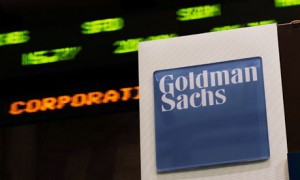Interpublic discloses stake in Facebook
http://www.ft.com/cms/s/2/e1f2c458-5e14-11e0-b1d8-00144feab49a.html#ixzz1IYYxoNCp
FT.COM
By David Gelles in New York
Published: April 3 2011
Interpublic, the advertising group, has emerged as an unlikely beneficiary of the surging value of Facebook. (Go to
http://en.wikipedia.org/wiki/Interpublic_Group_of_Companies to read more about Interpublic. Also go to http://www.sfgate.com/cgi-bin/article.cgi?f=/g/a/2010/05/13/businessinsider-meet-facebooks-soon-to-be-billionaire-shareholders-2010-5.DTL to read about Facebook’s other billionaire investors and the ouster of some of its founder.)

Mark Zuckerberg, co-founder of Facebook, owns 24 percent or $53 billion; he met with Pres. Barack Obama, Google Chief Executive Eric Schmidt (linked to CIA), and Steve Jobs of Apple in San Francisco in February
The company owns a stake in the social network that is today valued at somewhere between $200m and $300m, depending on Facebook’s valuation and the actual size of the stake.
The exact figures have not been disclosed, but people close to Interpublic say it owns slightly less than a half per cent of Facebook, and paid less than $5m for it in 2006.
Interpublic, which owns McCann Erickson and other agencies and is led by chief executive Michael Roth, secured shares in what was then an emerging site mostly popular with university students.
Investments by an advertising group in a social network are rare, but Interpublic won the privilege by committing to spend $10m for its clients on Facebook, an early win for a social network seeking to bolster its image with advertisers.
(Read: http://blogs.abcnews.com/politicalpunch/2011/02/steve-jobs-and-eric-schmidt-to-meet-with-president-obama-thursday-in-san-francisco.html to understand Facebook’s connections with those in power. Eric Smith’s Google has been linked to the CIA: to find out more about those connections, click on http://www.democracynow.org/2010/7/30/google_teams_up_with_cia_to).
The position in Faceok is not that substantial compared with Interpublic’s overall revenues, which totalled $6.53bn last year. But the value of the stake is welcome for the group, which is recovering from a tough few years during the recession, and has become large enough for Interpublic for the first time to report it in a filing with the US Securities and Exchange Commission.
“From time to time, we make investments in privately held companies that we believe may be of interest to the advertising and marketing sectors,” the company wrote in its annual report for December.
“Certain of these investments, the most significant of which is Facebook, have significantly appreciated compared to their cost, but there can be no assurance as to the terms on which we would be able to dispose of any such investments.”
(Ed. note: Go to http://choicelearning.blogspot.com/2006/01/personal-security-cia-and-social.html
When Interpublic took its stake in Facebook, the social network was valued at between $1bn and $2bn. Just a year later, however, Microsoft invested $240m in Facebook at a $15bn valuation.
But as Facebook’s valuation soared last year, thanks to robust trading on the secondary market, Interpublic realised it was sitting on a substantial stake, and was compelled to disclose it to the SEC.

The Russia-based Digital Sky Technologies owns 10 percent of Facebook, worth $22 billion; CEO is Yuri Milner
Based on a valuation of $50bn, an Interpublic stake of 0.4 per cent would be worth $200m. In recent weeks, however, Facebook has been valued at up to $85bn on the secondary market.
Facebook replaces employee over share purchases; Goldman Sachs involved
By Richard Waters in San Francisco
Published: April 2 2011 00:28 | Last updated: April 2 2011 00:28
A Facebook employee was replaced after he bought shares in the company in the private secondary stock market in contravention of the company’s own internal rules. (Go to http://www.huffingtonpost.com/2011/04/01/facebook-michael-brown_n_843489.html?ir=Business to read their take on the event.)
In a statement issued through his lawyer, Mr Brown said: “I did buy Facebook stock on the secondary market in early September 2010, and I did so with the absolute best of intentions and only because I believe in Facebook.”
However, he denied a report that his purchases were related in any way to the $1.5bn investment in Facebook that Goldman Sachs tried to arrange at the start of this year. (Also read http://www.guardian.co.uk/business/2011/jan/17/goldman-sachs-facebook-private-placement.)
The Goldman-led investment was later revamped and an offering to US investments scrapped after news of the planned private share sale leaked out, potentially putting the sale in contravention of US securities laws.
The misstep is a black eye for the social networking company, which has increasingly come to rely on the fast-growing private market in its shares as it has held back from a full public listing.The emergence of a liquid private market for its shares has made it possible for employees to cash in some of their holdings before an initial public offering and let outsiders build big stakes in the company, which is now valued by private share sales at more than $70bn.However, the lower level of transparency around private transactions has at times created headaches for Facebook, given the regulations designed to protect investors in these markets, and the company has been criticised for holding back from a full initial public offering.
Michael Brown, an employee in Facebook’s corporate development department, was replaced after buying shares in the company that contravened rules it had set to limit the timing of such purchases.
“I am saddened by the course of events that led to my departure and the incorrect reporting of it,” Mr Brown said. “I am now focused on moving on past this unfortunate series of events.”
Facebook declined to comment.








